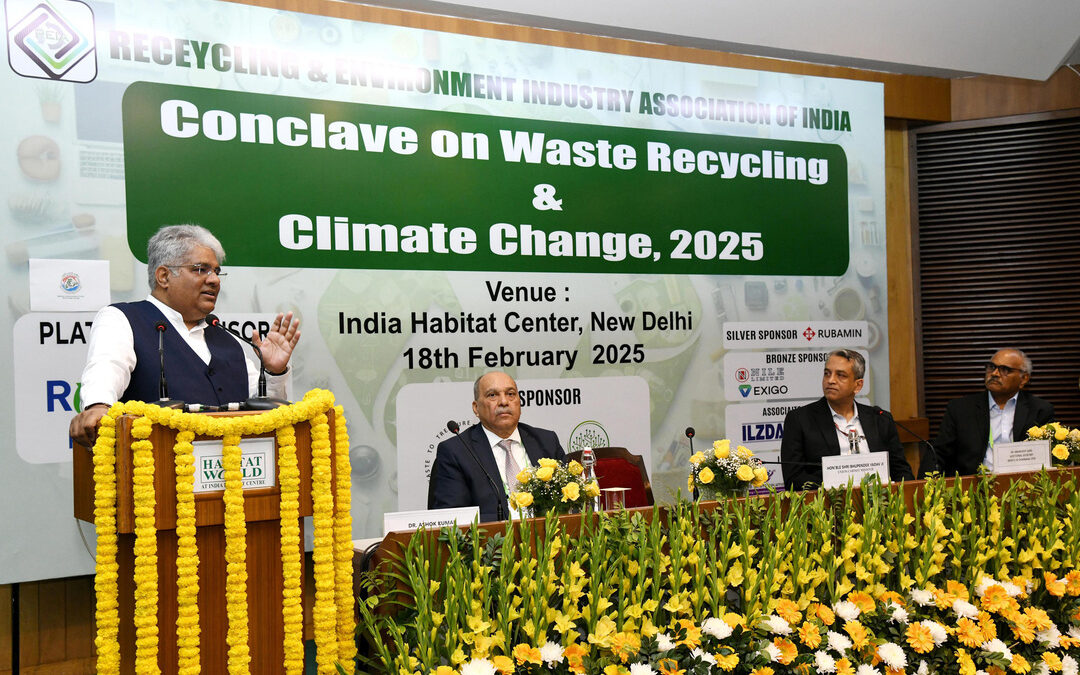India’s Circular Economy Poised to Reach $2T by 2050, Creating 10M Jobs
India’s circular economy to hit $2 trillion by 2050, creating 10 million jobs and driving sustainable growth.
India’s circular economy is projected to reach a market value of $2 trillion by 2050, creating 10 million jobs, Union Minister for Environment, Forest and Climate Change Bhupender Yadav said on Tuesday.
Speaking at the “Waste Recycling & Climate Change 2025” conclave organized by the Recycling and Environment Industry Association of India, Yadav highlighted the urgency of transitioning from a traditional linear economy to a circular one.
He pointed to the country’s rising waste generation — approximately 62 million tonnes annually — stressing that unchecked disposal was no longer viable.
“The circular economy is not just an alternative; it is essential. It marks a fundamental shift in how we produce, consume and manage materials,” Yadav said. “Under Prime Minister Narendra Modi’s leadership, India is moving from waste management to harnessing the economic potential of recycling through the Waste to Wealth initiative.”
Government Policies and Industry Participation
The minister underscored the economic opportunities of circularity, particularly for startups and innovators developing recycled products. He called on the recycling industry to adopt new technologies to reduce dependence on natural resources and minimize critical mineral imports.
Yadav also emphasized the role of government policy in supporting the transition. He highlighted regulatory frameworks such as Extended Producer Responsibility for e-waste, end-of-life vehicles, plastic packaging, waste tires, waste batteries and used oil.
He said these policies provide financial incentives to recyclers and integrate the informal sector into formal recycling networks.
“Industry-wide adoption of circular approaches is critical to driving sustainable growth and resource efficiency,” Yadav stated, outlining four key strategies for success:
- Redesigning Products for Circularity – Moving beyond single-use models by integrating biodegradable, reusable, and modular components.
- Investment in Advanced Recycling Technologies – Leveraging emerging technologies to improve waste recovery rates.
- Strengthening Supply Chain Collaboration – Optimizing resource utilization and creating closed-loop production systems.
- Consumer Awareness and Behavioral Change – Engaging consumers through campaigns and incentives to encourage recycling and sustainable consumption.
Dr. Amandeep Garg, additional secretary of the Ministry of Environment and chairman of the Central Pollution Control Board, emphasized the recycling industry’s critical role in reducing imports of essential materials.
Corporate houses, he said, should lead by incorporating recyclable designs and promoting sustainability across operations.
The conclave brought together policymakers, industry leaders, and environmental scientists. Discussions focused on fostering circular business models to achieve economic resilience and environmental sustainability.
Also Read:
Coal PSUs To Boost Circular Economy with Innovative Waste Management

